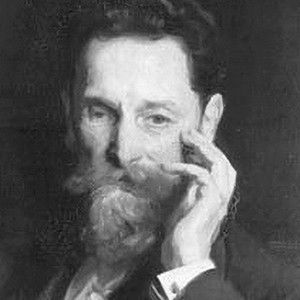TIMELINE
Our Founder

Today, more than a hundred years after his death, the name Pulitzer is all but synonymous with journalism of the highest caliber. The renowned Journalism School he founded at Columbia and the prestigious prizes that bear his name are indispensable pillars of a proud profession.
Yet, little more than a century ago, Pulitzer was a controversial figure, his legacy uncertain. His gift to Columbia is the story of how he made up for a dark moment in the history of journalism.
Joseph Pulitzer made his name pioneering a new kind of newspaper for the emerging mass audience of the gilded age. Balancing public interest reporting with colorful spreads and shameless sensationalism, Pulitzer’s papers (most famously the New York World) made journalism accessible and relevant to working people. But when William Randolph Hearst entered the market in 1895, determined to beat Pulitzer at his own game, a bitter circulation war began. Journalistic ethics were the first casualty.
In a dynamic familiar to veterans of the news industry, Pulitzer and Hearst competed relentlessly for audience share, their papers becoming more outrageous – and less accurate – day by day. So reckless was their rivalry that the term “yellow journalism” came to stand for their coverage of the Spanish-American War. And when the competition eventually died down, both men’s reputations were tattered.
Reflecting on the calamitous press war that had soiled his name, Pulitzer was alarmed. He understood the potential of journalism to help build a better future – but the battle with Hearst had demonstrated that an irresponsible press, reaping short-term benefits by feeding the public’s baser instincts, could shepherd the nation to hazard and ruin. How could Pulitzer propagate ethical reporting in a marketplace inherently vulnerable to yellow journalism?
After much thought, Pulitzer came to a fateful decision. He would use his fortune to enshrine the highest values of journalism in two prominent ways. There would be the Pulitzer prizes, which would annually recognize America’s best reporting. And there would be a great school of journalism, which would champion reportorial excellence and train future leaders of the profession.
The school should be located at Columbia, Pulitzer decided, both for its academic renown and its prime location in New York City, the beating heart of America’s mass media and an incomparable laboratory of diverse democracy in action. Its faculty would be accomplished veterans of the field, and its doors would be open to the most promising aspiring journalists, regardless of background.
Joseph Pulitzer died before his plan came to fruition, but his vision has animated Columbia Journalism School and the prizes in his name ever since. Much has changed in journalism and society over the last hundred years, but the school has consistently trained great journalists and championed the values of great journalism. And CJS plans to continue Pulitzer’s mission, into its second century and beyond.
